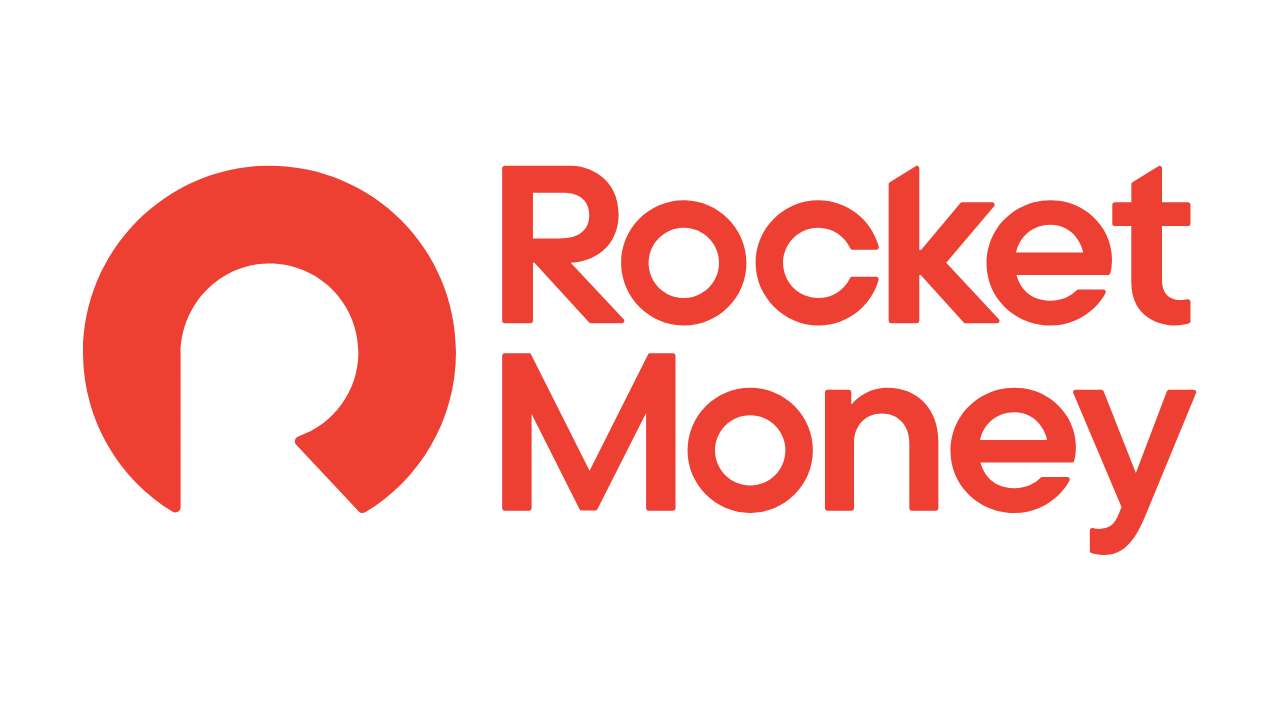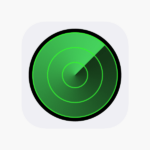Wondering about money management tools can be confusing, especially when terms like “free” come with conditions. Rocket Money offers a basic version that doesn’t cost anything, allowing users to track their spending habits and view their subscription services in one convenient place. The free version of Rocket Money provides fundamental budgeting functions like expense tracking, but has limitations compared to its paid options.
The app has gained popularity for helping people identify and manage their recurring expenses. While the free version lets users see their subscriptions, the ability to cancel them requires upgrading to a paid plan. Rocket Money’s premium features operate on a “pay what you want” model with a minimum of $5 monthly, giving users flexibility based on their financial situation.

📌 What is Rocket Money?
Rocket Money (formerly Truebill) is a personal finance and budgeting app that helps users:
- Track spending and subscriptions.
- Create budgets and savings goals.
- Monitor credit scores.
- Lower bills through negotiation services.
- Cancel unwanted subscriptions automatically.
It’s available on iOS, Android, and web.
🆕 Latest News & Updates (2025)
1. Pricing Transparency Debate
- Rocket Money’s premium subscription in 2025 still ranges from $6 to $12 per month (user‑selected “pay what’s fair” model).
- Some users report confusion because the pricing isn’t as transparent compared to competitors like Monarch or WalletHub (source: Ground News).
2. Competition in 2025
- Rocket Money is competing directly with Monarch Money (strong for long‑term financial planning) and WalletHub (which has a free model).
- Rocket Money’s strength remains in subscription tracking and bill negotiation, while competitors focus more on investment tracking and credit tools.
3. Integration with Rocket Companies
- As part of Rocket Companies (RKT), Rocket Money is increasingly integrated with Rocket Mortgage and Rocket Loans, giving users more cross‑service financial tools.
- This makes Rocket Money a stronger ecosystem play for people already using Rocket’s lending and mortgage services.
4. User Growth & Expansion
- Rocket Money continues to grow its user base in 2025, especially among younger users who want AI‑powered budgeting insights and automatic subscription cancellation.
- Expect more AI features rolling out this year, including smarter bill‑negotiation bots and predictive budgeting.
📊 Key Features in 2025
- ✅ Budgeting dashboard with AI insights.
- ✅ Smart savings accounts (automated transfers into savings goals).
- ✅ Bill negotiation service (Rocket Money negotiates cable, phone, or internet bills for a cut of the savings).
- ✅ Subscription cancellation with one‑tap automation.
- ✅ Credit score tracking (basic for free users, advanced for premium).
⚖️ Pros & Cons (2025)
✅ Pros
- Easy to use, beginner‑friendly.
- Great at finding and canceling subscriptions.
- AI insights for smarter budgeting.
- Integrates with Rocket’s other financial products.
❌ Cons
- Premium plan pricing ($6–$12/month) can feel unclear.
- Investment tracking is weaker than Monarch or Personal Capital.
- Some features (like bill negotiation) charge extra fees.
🏆 Final Recommendation
- Best for: People who struggle with subscriptions, want automated budgeting, or already use Rocket services (mortgage, loans).
- Not ideal for: Advanced investors or users who want highly detailed financial planning (Monarch may be better).
Key Takeaways
- Rocket Money offers a free basic version with expense tracking and subscription viewing capabilities
- Premium features like subscription cancellation services require a paid plan starting at $5 per month
- The app serves as a comprehensive personal finance tool that helps users identify spending patterns and manage recurring expenses
Rocket Money vs Monarch vs WalletHub (2025)
| Feature / App | Rocket Money | Monarch Money | WalletHub |
|---|---|---|---|
| Pricing | Free version + Premium $6–$12/mo (user‑selected) | $14.99/mo or $99.99/year | Free |
| Best For | Subscription tracking, bill negotiation, budgeting | Advanced financial planning, investments, couples/families | Free credit score monitoring & basic budgeting |
| Budgeting Tools | Yes (AI insights, spending categories) | Yes (very detailed, customizable) | Limited |
| Subscription Tracking | ✅ Excellent (auto cancellation + alerts) | ❌ Not a focus | ❌ Not available |
| Bill Negotiation | ✅ Yes (Rocket negotiates bills for a cut of savings) | ❌ No | ❌ No |
| Credit Score Monitoring | ✅ Basic (premium adds more detail) | ❌ No | ✅ Free, updated daily |
| Investment Tracking | ❌ Limited | ✅ Strong (syncs with brokerages, retirement accounts) | ❌ None |
| AI Features (2025) | ✅ AI budgeting + predictive savings | ✅ AI financial planning insights | ✅ Credit AI alerts |
| Integrations | Strong with Rocket Mortgage/Loans ecosystem | Bank, brokerage, and family account sharing | Credit bureaus + free tools |
| Ease of Use | Very beginner‑friendly | More advanced, steeper learning curve | Simple but limited |
| Refund Policy | None (cancel anytime) | 7‑day free trial | Always free |
🏆 Which One Should You Choose?
- Choose Rocket Money if…
You want to track and cancel subscriptions, negotiate bills, and get AI‑powered budgeting insights. Best for everyday money management. - Choose Monarch Money if…
You need long‑term financial planning, investment tracking, or want to manage finances with a partner/family. Best for advanced users. - Choose WalletHub if…
You want a completely free tool with strong credit monitoring and basic budgeting. Best for credit‑focused users.
Understanding Rocket Money as a Personal Finance Solution
Rocket Money (formerly Truebill) serves as a comprehensive personal finance tool designed to help users manage their money more effectively. The platform offers various features that focus on budget tracking, subscription management, and bill negotiation to improve financial health.
How Rocket Money Works with Your Bank Account
Rocket Money connects directly to users’ bank accounts through secure encryption protocols, creating a read-only link that allows the app to display financial information without making changes. This connection enables the app to automatically categorize transactions and track spending patterns across different accounts.
Users can link multiple financial accounts including checking, savings, credit cards, and investment accounts to get a complete financial overview. The dashboard shows real-time balances and recent transactions.
The free version provides basic account syncing and transaction monitoring. Premium subscribers receive enhanced features like customized budget categories and spending alerts when accounts reach predetermined thresholds.
For security, Rocket Money uses bank-level encryption standards and doesn’t store banking credentials on its servers.
The Role of Email in Managing Account Balances
Rocket Money leverages email connectivity to enhance financial tracking capabilities. The platform can scan users’ email accounts for subscription confirmations, recurring bill notifications, and payment receipts.
This email scanning feature helps identify hidden subscriptions that might otherwise be overlooked. Users can grant permission for Rocket Money to access their email accounts, allowing the app to automatically detect subscription services and their costs.
The system sends customizable alerts via email when bills are due, when account balances fall below certain thresholds, or when unusual spending is detected. These notifications help prevent overdrafts and missed payments.
For premium subscribers, Rocket Money offers enhanced email features including PDF bill storage and detailed spending breakdowns sent on a weekly or monthly basis.
Comparison with Other Budgeting Apps like Mint and Monarch Money
While Mint offers completely free budgeting tools with revenue coming from advertisements and referrals, Rocket Money uses a freemium model with basic features available for free and advanced features requiring a subscription between $3-$12 monthly.
Monarch Money tends to focus more on investment tracking and goal setting, while Rocket Money emphasizes subscription management and bill negotiation. Both require payment for full functionality.
In terms of user interface, Rocket Money provides a more streamlined experience focused on quick actions like canceling subscriptions, whereas Mint offers more comprehensive budget categories and spending analysis.
All three apps connect to financial institutions, but Rocket Money’s subscription detection capabilities are generally considered superior. Mint excels at spending categorization, while Monarch Money offers better long-term financial planning tools.
Rocket Money’s bill negotiation service distinguishes it from competitors, though it takes a percentage of savings as payment for successful negotiations.
Key Features and Benefits of Using Rocket Money
Rocket Money offers a comprehensive suite of tools designed to help users gain control over their finances. The platform combines subscription management, bill negotiation, and savings features in one convenient app.
Automating Savings and Cancelling Unwanted Subscriptions
Rocket Money’s subscription tracking feature identifies recurring charges that might go unnoticed in bank statements. Users can view all their subscriptions in one place, making it easier to spot services they no longer use or need.
The app simplifies the cancellation process by handling it on behalf of users. This saves time and removes the hassle of navigating complicated cancellation procedures that companies often put in place.
Beyond subscriptions, Rocket Money offers an Autopilot Savings feature. This tool automatically transfers small amounts of money into a dedicated savings account based on spending habits and financial goals. The system analyzes income patterns and expenses to determine optimal saving amounts without disrupting necessary spending.
Users can set specific savings goals like vacation funds or emergency savings, and the app works quietly in the background to help achieve them.
Security Measures to Protect Financial Information
Rocket Money employs bank-level 256-bit encryption to protect sensitive financial information. This security standard is the same used by major financial institutions worldwide.
The app utilizes read-only access when connecting to bank accounts. This means Rocket Money can see transaction data but cannot move money or make changes to accounts without explicit user authorization.
Two-factor authentication adds an extra layer of protection. This security feature requires users to verify their identity through a second method beyond just a password when logging in from new devices.
Rocket Money’s privacy policy clearly outlines how user data is handled and protected. The company does not sell personal information to third parties, which helps protect users from potential identity theft and fraud.
Accessibility Across Devices: From Mac to TV
Rocket Money offers cross-platform compatibility that allows users to access their financial information from virtually any device. The service provides dedicated apps for iOS and Android, as well as a web interface for Mac and PC users.
The mobile apps feature intuitive interfaces designed for on-the-go financial management. Users can receive real-time notifications about unusual charges, upcoming bills, or successful savings transfers directly on their smartphones.
For those who prefer larger screens, Rocket Money’s web version offers expanded views of financial data with detailed charts and graphs. Some users even connect the web version to their TVs for family budget meetings.
The platform automatically syncs data across all devices. Changes made on a phone immediately reflect on a tablet or computer, ensuring users always have access to the most current financial information regardless of which device they’re using.
Integrations with Financial Services like Plaid
Rocket Money uses Plaid, a secure financial technology provider, to connect with over 15,000 financial institutions. This integration allows users to link checking accounts, credit cards, loans, and investment accounts from almost any bank.
The service can also connect with other financial apps and services to create a more complete picture of a user’s finances. These integrations help track net worth by pulling in data from various sources including retirement accounts and investment portfolios.
For budgeting enthusiasts, Rocket Money categorizes transactions automatically. The system learns from user corrections to improve accuracy over time, creating a personalized financial tracking experience.
Premium users gain access to additional integrations like credit score monitoring. This feature helps users track changes to their credit score and understand factors affecting their creditworthiness without impacting their score.
Frequently Asked Questions
Here are answers to common questions about Rocket Money’s free and premium services, security features, and how to manage your account.
What are the differences between the free and Premium versions of Rocket Money?
Rocket Money offers a basic free version and a Premium paid version. The free version includes subscription tracking, bill monitoring, and basic spending insights.
Premium features include automatic subscription cancellation services, custom budget categories, net worth tracking, and premium chat support. Users pay between $3-12 per month for Premium, with the exact amount being user-determined within that range.
The free version is sufficient for basic financial monitoring, while Premium offers more hands-on tools for active financial management.
How can users ensure their information is safe with Rocket Money?
Rocket Money uses bank-level 256-bit encryption to protect user data. They implement multi-factor authentication to prevent unauthorized access to accounts.
The app connects to financial institutions through secure APIs rather than storing login credentials. Rocket Money maintains a strict privacy policy that limits how they use and share personal information.
Users should also create strong, unique passwords and regularly review connected accounts for additional security.
Can users access Rocket Money without any charges, and if so, for how long?
Yes, users can access Rocket Money’s basic services indefinitely without charges. The free version has no time limit or trial period restrictions.
Users can continue using the core features including subscription tracking, spending notifications, and basic budgeting tools at no cost. The free version remains accessible even if users decide not to upgrade to Premium.
There’s no obligation to eventually pay for the service, making it truly free for those who only need the basic features.
What steps are involved in cancelling a Rocket Money subscription?
To cancel a Rocket Money Premium subscription, users must contact customer support through the app’s chat feature. The cancellation cannot be done through automated settings.
Users should explain their desire to cancel and may need to answer questions about their reasons for cancellation. The support team processes the request, and users should receive confirmation of cancellation.
It’s recommended to initiate cancellation at least a few days before the next billing cycle to avoid additional charges.
What are the key features and limitations of the free version of Rocket Money?
The free version of Rocket Money allows users to track subscriptions, monitor spending, and receive basic financial insights. Users can connect multiple accounts and receive alerts about upcoming bills.
Limitations include manual subscription cancellations rather than automated assistance, fewer customization options for budgeting, and limited customer support. The free version also doesn’t include credit score monitoring or net worth tracking.
Despite these limitations, many users find the free version sufficient for gaining better awareness of their recurring expenses.
Where can users find comprehensive reviews of Rocket Money’s services?
Independent financial websites like Ramsey Solutions and personal finance blogs offer detailed reviews of Rocket Money. These reviews typically compare features across both free and paid tiers.
Consumer review platforms such as Trustpilot and app stores provide user-generated feedback based on real experiences. Financial publications regularly update their assessments of money management apps, including Rocket Money.
Reading multiple sources helps users get a balanced understanding of the service’s strengths and limitations before signing up.







